Football Online
A look at the impact that
social media has had on
the beautfiul game

Football. The world’s most popular sport, and also one of the oldest team sports that’s still recognisable today.
Naturally, football has seen a high number of changes over the years; the addition of the offside rule in 1866, penalty kicks being introduced in 1891, the first World Cup in 1930, yellow and red cards first being used in 1970, and more recently, in 2018, the first use of video assistant referees.
The last of those has been at the centre of huge controversy since its inception. This is largely thanks to the part that social media has played with football.
Facebook, Twitter, Instagram, and YouTube, amongst others, have shaped the way football is covered, discussed and viewed, and has bridged a gap between clubs, players and fans that had existed for a long time.
Social media, as will be discussed later, has created jobs in football, but it has perhaps also sounded the death knell for others. It’s created new communities where fans like me from all over the world can discuss the sport we love.
In this article I want to examine how social media has changed the way football is covered by journalists, how players use social media, how social media can be used as a marketing tool, and how it has provided fans with new ways to talk about football.
Football journalism
How has it changed?
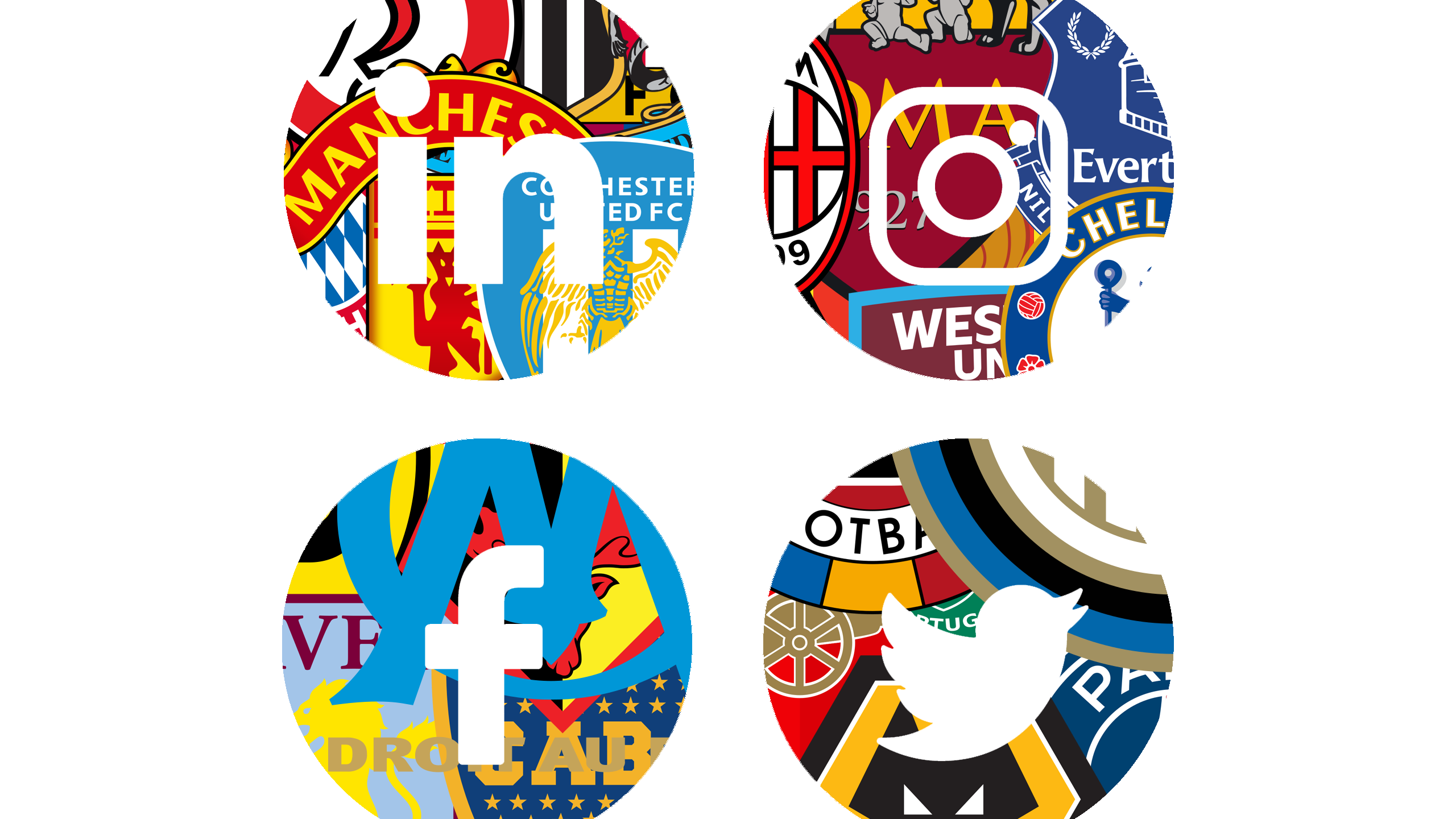
“When I started, social media wasn’t at all a factor, but when I left the Mirror, it was huge.”
Anthony Clavane was very much brought up as an old-school journalist, working on a number of local newspapers before being made chief sportswriter for the Sunday Mirror in 1998.
He then worked as a senior sports journalist at the Daily Mirror before leaving in 2016, writing award-winning books and three successful plays along the way.
“I used to work on the East Anglian Daily Times in the early nineties, and only one person in the office had a mobile phone. It was only when I started working for the Mirror that I got my first mobile. But fast forward 20 years, and now everything is done on the phone.”
As someone who is generation Z and has grown up with a phone, as sad as it sounds, I cannot imagine what I’d do without my phone. I’m interested in how methods of covering football have been adapted to the social media era.
“If I would do an interview with David Beckham, I would have to go back to the office, listen to the interview, write it up and then it would go out maybe the next day. Nowadays, I could just put a picture of me and him on social media and I could say ‘David Beckham told me this’ within a few seconds of the interview finishing.
“It has sped up the process of how news is broken.”
At this point, Anthony, who currently teaches Journalism at Essex University, turns the interview around on me. He asks whether or not I read a newspaper. I say no. He then tells me how that is the case with the majority of students he teaches.
“Why would you?” he says, with what I suspect is an underlying tone of disillusion. “You can easily get articles on your phone. This whole thing about speeding up the process… why do you have to wait until tomorrow morning to read about a football match when you can read about it within a few minutes of it finishing, on Twitter, or any other platform?”
“Why have a newspaper? Why wait until the following morning? That’s one massive change that has taken place as a result of how football is covered now.”
I ask Anthony about whether or not the journalist’s traditional role of bridging the gap between players and fans has now been made redundant due to social media.
"You need to actually hold people to account. A journalist needs to ask a difficult question"
“Yes and no. You can now cut out the middleman and go directly to the fan. One player who divides fans is Leeds striker Patrick Bamford.”
By the way, I should mention that Anthony is a huge Leeds United fan. One of the books he wrote was about his relationship with and love of Leeds United Football Club. It won Sports Book of The Year.
“He’s been absolutely hammered by the fans this season. Leeds would create loads of chances, and he wouldn’t take them. Eventually, he complained about getting criticism from the media, but he got around that by connecting with the fans via videos and Q&As that he has uploaded to social media.”
That is one side of the argument. However, Anthony still thinks that journalists play a crucial role in extracting the truth from players and clubs, and delivering that to the fans.
“If the truth is just being controlled by the player, the manager, the club, or the owner, then it’s just a propaganda machine for the club. You need to actually hold people to account. A journalist needs to ask a difficult question.”
He then alludes to Erling Haaland, the Norwegian striker who burst onto the scene this season since signing for the German giants Borussia Dortmund, but has been in the limelight recently due to his blunt interview style.
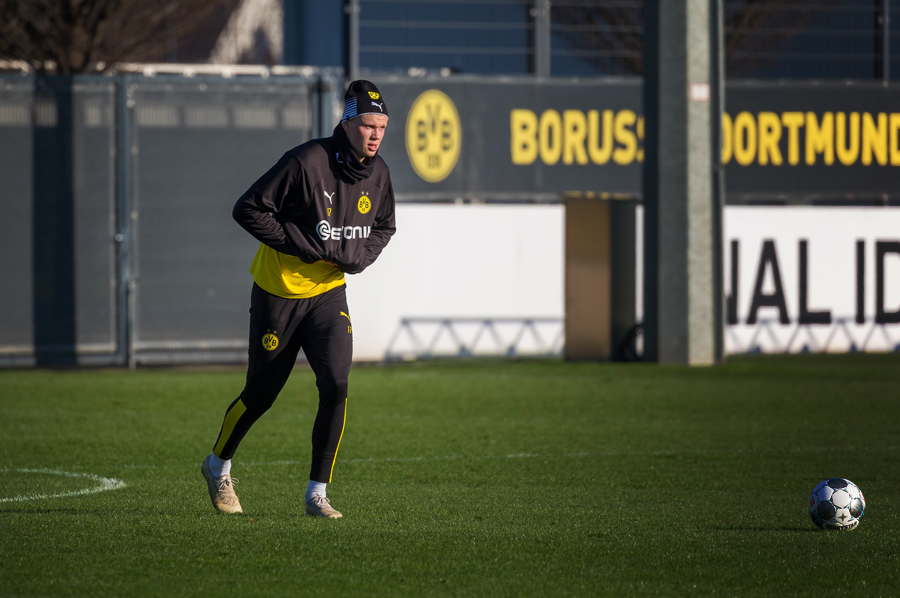
Erling Haaland
Erling Haaland
“It’s kind of funny, on one hand. It’s like him saying ‘I’m not going to give you a straight answer because you’re asking stupid questions.’ But to me as a journalist, it’s very frustrating. It’s like ‘who do you think you are?’ because the journalist he’s talking to is, in that case, the way you get to the fans. He’s choosing not to give his views or give more than a one syllable answer.
“He might then go on social media and put out what he wants to put out, but on the whole, I think it is a bad thing. You miss out on the scepticism, the criticism and the questioning you need as a journalist.”
Anthony thinks that England’s game vs Bulgaria is a great example of how important the role of a journalist is to football. This is the incredibly controversial game that took place in 2019, where racism from the crowd provided a shocking and upsetting backdrop to England’s 6-0 win.
“Let’s say you were a Bulgarian journalist. You should be asking the Bulgarian manager, players, and fans ‘how can you do that?’. But instead, they were getting behind Bulgaria, and trying to state that they were not the only racist nation. You can’t be a propaganda arm of the players and the team.
“Sometimes you have to ask the difficult questions, but on social media, players have more control as they can just block you if you say something you disagree with.”
So, does Anthony therefore think that the quality of football journalism has been undercut by social media?
“Yes, I think on the whole, it has.
“There are certain things that social media has improved. The instant connection you can have with sports news, the fact that you can now have a conversation with other fans about football online immediately.
“But I don’t think that’s a good aspect of journalism. In football journalism, you’ve actually got to bring in the critical faculties and have the experience of someone who has covered football for years.”
Earlier in the interview, Anthony had told me that he doesn’t think about this sort of thing too often, but as our discussion went on, it was clear to me that he had started making up his mind about the effect that social media has had on football journalism.
“I think it’s had a negative effect. There was a golden age for football journalism where you had brilliant writers. Everyone would want to know what the great writers would think about certain subjects. They wrote well, and they had a really talented way of writing about football.
“The quality of writing isn’t as good as it used to be. Anyone could go viral on social media by slagging something off or saying something funny, and that would be given more value than the old, trusted football writer.
“It’s now about entertainment rather than accuracy, quality and good analysis.”
Jon Waldron believes you need to find a balance between the two.
“I hate saying this, but there might not be quite as much need for accuracy for certain online stories as there would be for some of the print content we would have done traditionally.”
Jon has been a sportswriter on the Colchester Gazette for 15 years, and is a popular figure on Twitter thanks to his accurate and reliable coverage of Colchester United. He talks about the effect that his time writing before social media has had on the content he puts out today.
“When I did my journalism qualification, one of the biggest things they drilled into us was accuracy. I would think that has to still come first, whether that’s in print or online.
“It’s a different mentality online. You get that kind of clickbait story where perhaps the quality isn’t quite as rich as it would if it were in a print format, but I think that anyone who’s been in the newspaper business pre-social media will have that accuracy aspect ingrained in them.”
So how did he cope with the evolution from print to social media?
“It took a lot of getting used to. When you’re doing something for a while, that’s what you’re used to and when social media came around, I had to think of a different way of working, which was quite hard at first.
“As time went on, I got used to it and now I couldn’t imagine doing the job without social media. It’s probably the most important part of it.
“Without social media we wouldn’t be able to promote our stories online and reach the audience that we’d like to. The research shows that people don’t necessarily go straight to our website, they’ll often need to be prompted through social media channels.”
It’s clear to see once again that social media has had an impact on the way journalists cover football. Jon says that he actually thinks the obligation to use social media has made his job harder, but remains upbeat about the new challenges he experiences in his job.
“It’s made it harder, but in a good way. There’s more to think about and more to be aware of.
“When I first started out, you’d write the story and you’d be thinking ‘right this is a good back page story.’ You would think purely about the newspaper.
“Now I think about how things will look on the web, when it will go up to our site, how are we going to promote it, how much traffic is it going to get and whether or not this is a story that is suitable for the web.”
So, it’s the million-pound question again. I ask Jon whether he thinks social media has had a positive or negative effect on football journalism.
“That’s a good question” he says. Thanks Jon.
“I think it’s been positive on the whole. It’s given people the opportunity to read fantastic journalism content at the click of a button.
“Previously, if you wanted to read regional copy, you would have to buy that paper in that area, whereas now if you wanted to read anything about the club you support, you can do that from anywhere around the world via your phone.
“It also gives people a voice and an outlet that they may not have had before.”
The Pro's Opinion
How does a professional footballer use social media?
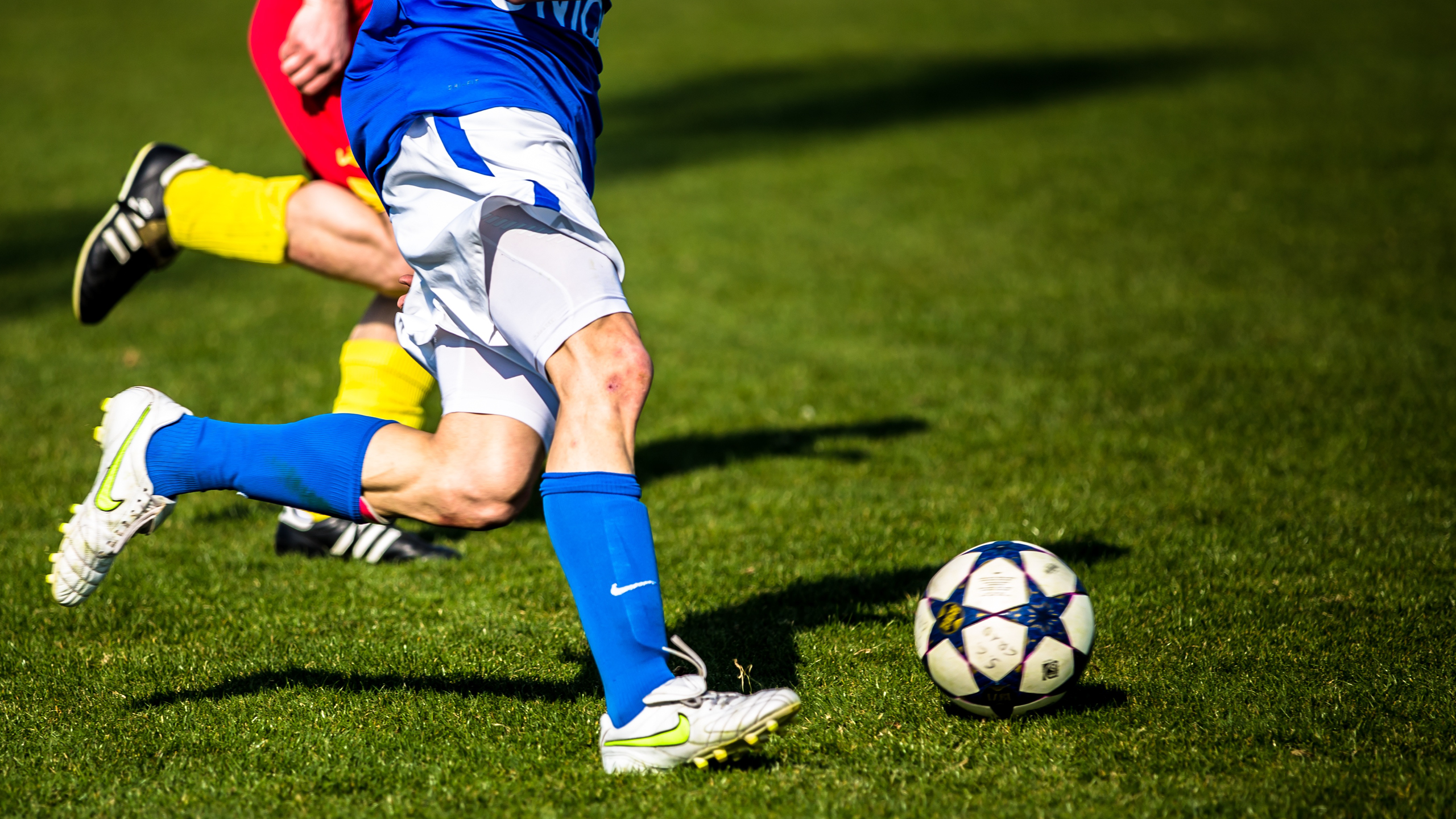
Football fans like me love to pretend that we know what we’re on about. I have been a fan for 17 years, but I only played football for 7 of these years. Despite this, every Saturday I still end up yelling at the players as if I could do better.
Some fans like to take this to social media, which is easier than ever as Twitter and Instagram now give fans an access to players that they never used to have.
Louis Dunne plays professionally for Colchester United, and he says that it can be quite daunting checking social media after a bad result.
"There are always people who will criticise, maybe even after a win, but you just have to accept that"
“Players do check it. Everyone’s quite human in that sense. I wouldn’t want to check it, but I find myself doing it on human instinct.”
Abuse from the fans has always been part of football, but I wonder if the introduction of social media has increased the importance of mental strength as a quality for a footballer.
“If you’re strong mentally, then you can get away with checking social media. Premier League players can get tens of thousands of tweets and that can be quite scary for people, but I think that most footballers are mentally strong enough to deal with that.
“Defeats do happen in football, but it’s about how you deal with them. On social media there are always people who will criticise, maybe even after a win, but you just have to accept that.”
It’s clear that social media does have an impact on the players, so I ask Louis if social media has ever changed the way that he played.
“Not me personally. I don’t think that any player would keep that in the back of their mind. I guess they could use it for motivation, but I don’t see why you wouldn’t be solely focussed on your performance and worried about yourself, rather than worrying about what people have put on social media.
“If it makes you play better, I suppose it’s something that you can do, but in my opinion, I would think that most players can easily just focus on the game.”
Louis, whose dad Joe is a Colchester United legend due to his days as a player and a manager, says that whilst he doesn’t use social media as much as other players, he does spend a fair amount of time on Twitter and Instagram.
“I think social media is a massive positive. Obviously, it does have its downfalls – there are people who decide to use it for negative things and as footballers we are so often in the limelight, one slip-up can lead to abuse.
“But I would say that the majority of it is positive.”
This is a sentiment that is shared by the Professional Footballers Association (PFA) whose social media guidance for players says: “The positive use of social media can allow you to interact with fans directly, thereby instilling a sense of connection between supporter players and clubs,” which can then “counteract the complaint which is sometimes made, that players can be too far removed from the supporters.”
I ask Louis how important he thinks this connection is.
“I think it’s massive. There’s always messages of support, and I would say that’s the majority of what you receive as a player.
“I have had social media since I was a kid, but I think before, when my dad was playing, they’d always make sure to have a connection with the fans on a one-to-one level, rather than on social media, but you can now reach more fans online rather than the 10 to 15 that you’d speak to down the pub.
“I think it’s massive for a club and for players to understand that and to connect with fans. It can only be a positive thing.”
Footballers obviously spend the majority of their time training, improving as a team and as individuals. But as social media’s importance to football continues to increase, do players find they now have to partake in a different type of training?
“We do get social media training quite often. When I was in the youth team, I used to get it, and when I turned pro, I still got it.
“A trained person would come in and talk about how what we do on social media affects a lot of people, and how it puts yourself out there to the world. It’s quite scary, but it’s also a good tool.”
A further point that the PFA makes is how social media can be used to “enhance your own and your club’s commercial activities”. Louis speaks about the importance of this.
“Social media is a good tool for branding. Harry Kane, for example, has being doing a lot of charity work during the lockdown, that can give him a good persona to the public.
“Once you have that brand, people can relate to you, look up to you, and send you nice messages.
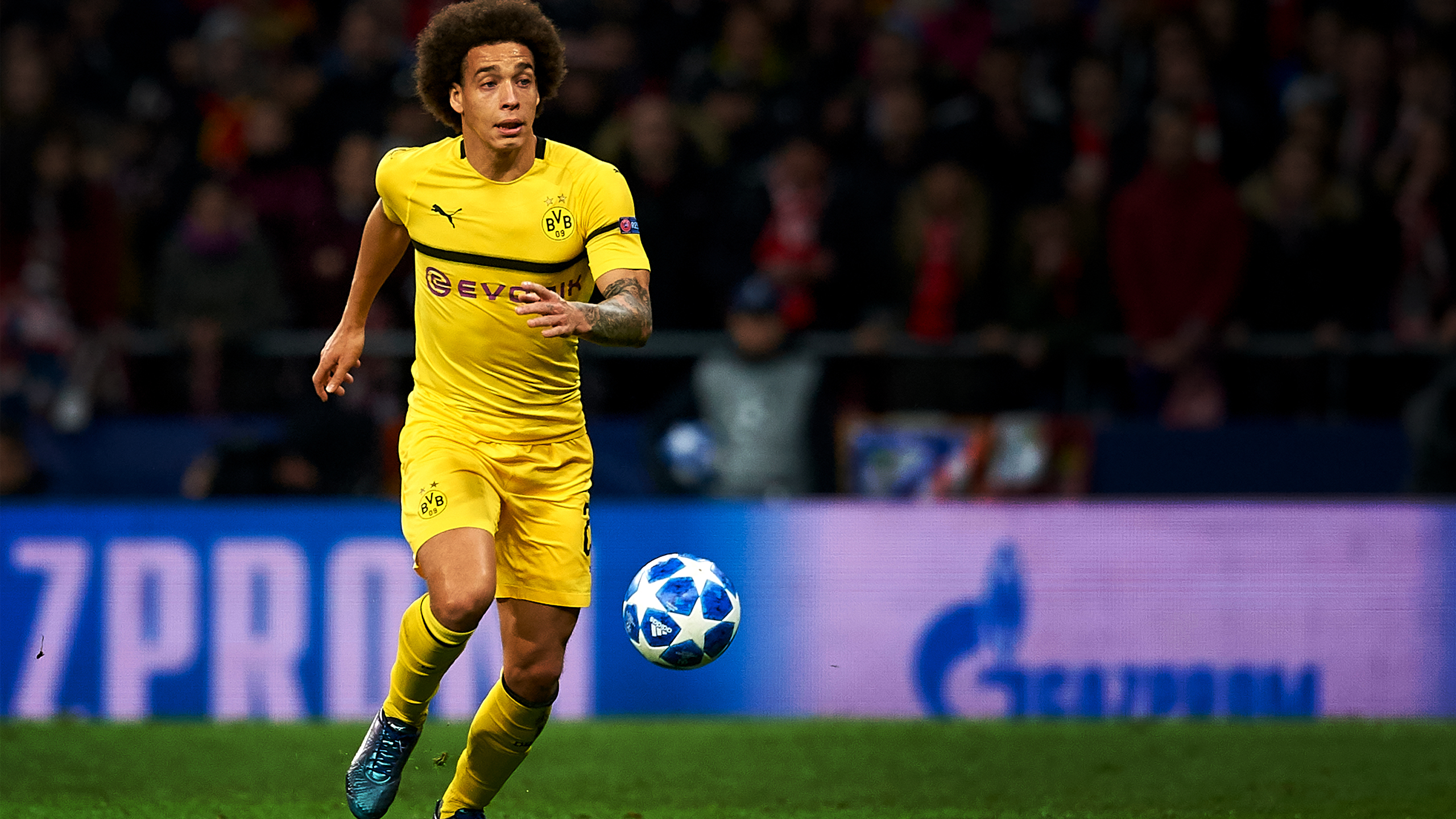
Branding is something Louis mentions often, so I wanted to find out more about it.
I spoke to Jake Nembhard, who has the enviable job of running Belgian international Axel Witsel’s social media accounts.
“Branding is really important, especially in this day and age. The better a player’s social media is, the more money they can make through sponsorship posts etc. It could even help with getting a job post football.
“When you look at players like Thorgan Hazard, they’re not as consistent on social media so they don’t get the same number of followers despite the fact that they play for the same club and country.”
I should note that Jake said that this could also be down to the fact that Axel has been around for longer and played for more clubs.
Partially as a result of Jake’s work, Witsel (pictured above) has amassed over 2.7 million followers across all of his social media accounts, so I ask Jake what it’s like to put out content to such a huge audience.
“I love it when a post gets a good response. After the recent Schalke game, a tweet I made got really good numbers and got shared by a few big football pages. It’s also of course good for building his profile even further.”
I ask Jake what his job consists of on a day-to-day basis.
“It can change so much, but I always need to engage across all platforms by responding to the Dortmund and Belgium club accounts and Axel’s teammates’ posts. I need to post where relevant across his socials, create content whether it be video editing or photoshop, and stay in contact with his sponsors about any partnership posts, etc.”
I think the idea of social media creating new jobs in football is fascinating, and Jake is very grateful for the positive impact it’s had on his career.
“Social media is very important for me. I have now got the opportunity to do exciting things like this, which I wouldn’t be able to do if social media weren’t around.”
Social media support
What new ways are there to discuss football?
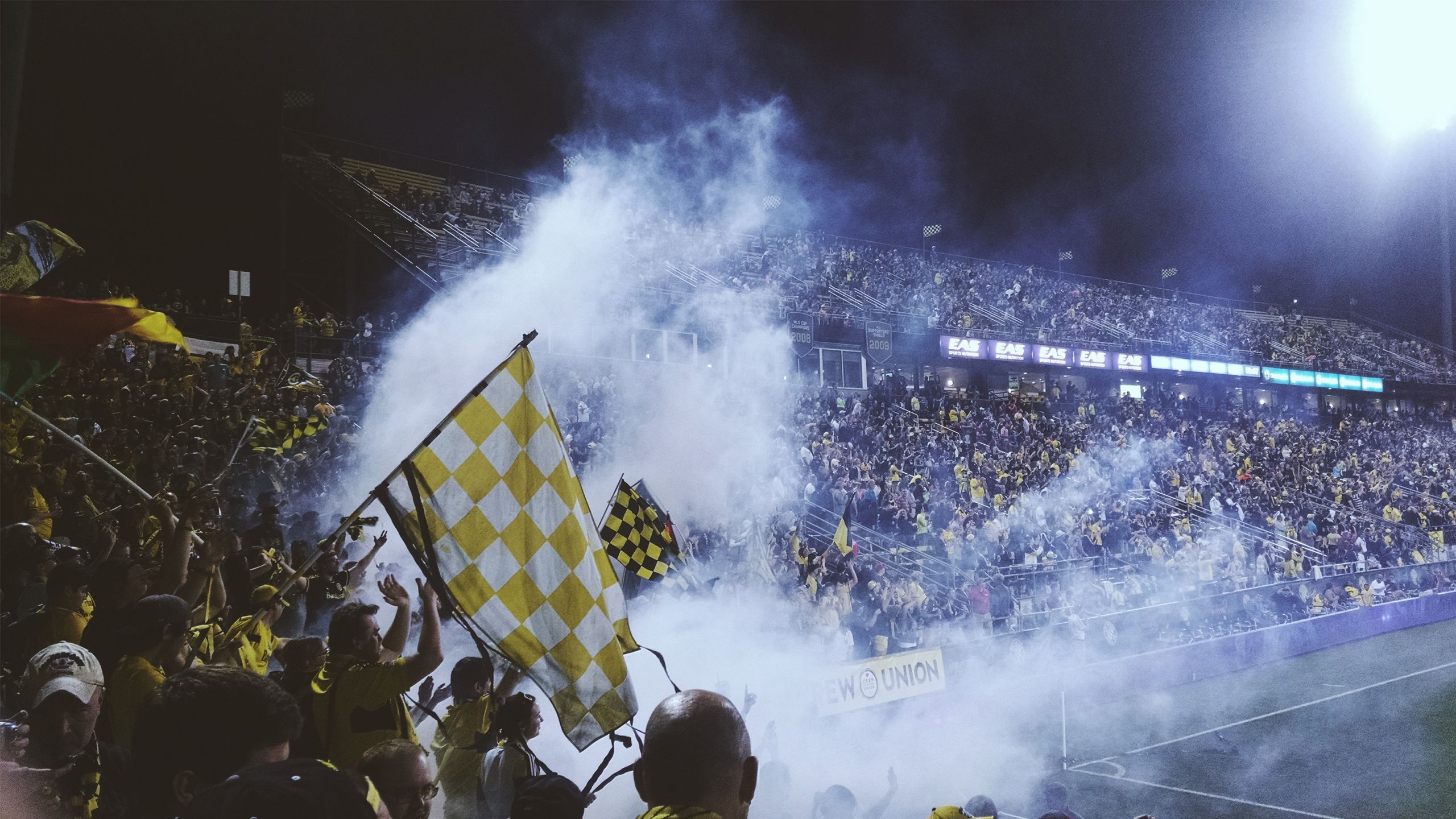
“What attracts me to social media is the fan culture” says Bryn Griffiths, a Colchester United fan who, after moving down to Essex from the North, used to co-present the Bryn and Bill football show on Colne Radio.
“I’m a creature originally of 1970s’ football, when I first started going as a teenager, I was a Manchester United fan. I used to go in the Stretford End in the Red Army years.
“For me football was always about more than what happened on the pitch. It was about fan culture, being part of the Red Army, and going to occasional away match. I’ve always been interested in seeing football in a much wider context.
“Social media gives you a real opportunity to do that.”
According to a study by IMG Consulting, 80% of British social media-using sports fans use outlets like Twitter, Instagram, and Facebook to get information on their team by following individual journalists and feeds from respected and well-known newspaper and broadcast outlets.
It’s safe to say that Bryn falls into this 80%, and he even offers me up a statistic of his own.
“I would say about 90% of my football reading comes from social media.”
But a difference between Bryn and what I would guess is a huge amount of that 80% is that he needs to get his information from social media.
“Colchester United just don’t get covered in the mainstream media.
“On Twitter, you can create things called lists, where you follow people that tweet about a certain topic. I’ve got a Colchester United list, and it’s almost as if I’ve created my own football newspaper.”
This ties in interestingly with what Anthony Clavane mentioned earlier about the potential death of newspapers. If fans are creating their own online versions, then what is the need for print newspapers? Anyway, continue Bryn.
“When the issue came up last week about whether or not football should be resumed after COVID-19, I wasn’t just seeing the Colchester United official accounts, I was seeing a live proportion of Colchester United’s most fanatical fanbase discussing every bloody minutiae of it.
“Who needs a tabloid when you’ve got that?”
Bryn started his radio show as an attempt to try and increase coverage of lower league teams like Colchester United, and he tells me about the people he spoke to whilst presenting his radio show.
These include the non-league protest club FC United of Manchester's communications manager and a group of Blackpool supporters who were members of the Oyston Out campaign (which involved a four-year mass boycott).
He also mentioned that he has appeared on podcasts for some of Colchester United’s League Two rival teams such as Crawley and Grimsby.
It’s this sort of networking that Bryn enjoys about social media. It enables him to converse with like-minded fans from across the country.
“There’s this whole ecology of football fans communicating with each other, having banter and talking about the players.”
Bryn mentioned earlier that he’s been a football fan since the 70s, and I’m pretty sure that social media wasn’t around back then, so I ask him how used to get his football news.
“The space that is now filled by social media, when I was in my teens and twenties was the fans’ do-it-yourself fanzine culture.”
You could perhaps say that fanzines are the forefathers of the social media coverage you see today, especially the DIY aspect that Bryn mentions. Social media for sure played a huge part in the downfall of fanzines.
Perhaps the reason why fans like Bryn enjoyed fanzines so much is that they give fans a voice. Social media does the same thing, but on an even bigger scale.
“I wonder whether that amazing boycott campaign that Blackpool fans had to get rid of Owen Oyston, or the protest by Leyton Orient fans against their old owner could have happened without social media.
However, fans having an increased say isn’t always a good thing, as Bryn is quick to point out.
"Then you go home and go on social media, and there’s every lard-arse big-mouth telling you about what a useless fucker you are"
“I’m hoping that there is beginning to be a debate about how football fans should behave, because the abuse that some players get is appalling.” The chipper expression that was present in his voice whilst he was talking about how he uses social media now turns to a more sombre tone.
“A lot of footballers are struggling to make a living and struggling to get a contract. They might end up in the non-league, they have screwed up their education to go to a football academy and the vast majority of them just get cast aside like rubbish.
“Yet, they still get abuse. There’s just a lack of empathy.
“There’s not many workplaces where thousands of people hurl abuse at you if it’s not going well, and then you go home and go on social media, and there’s every lard-arse big-mouth telling you about what a useless fucker you are.
“It must be a real problem with some players to have to face that abuse on social media.”
Bryn mentions the YouTube show The Ball Don’t Lie by Colchester United strikers Frank Nouble and Theo Robinson as something that can help raise awareness about these issues, and he hopes that a result, other fans might start showing a bit of empathy towards players.
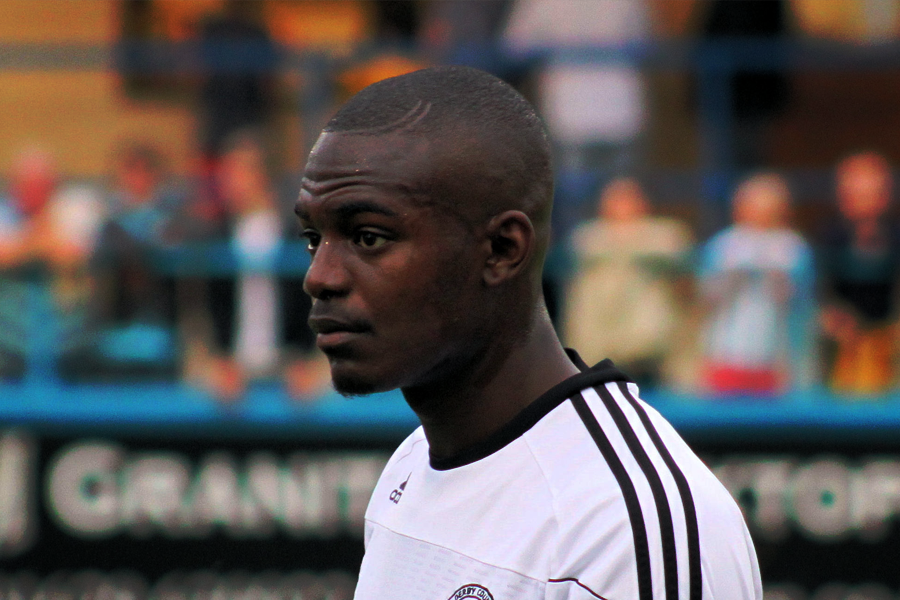
Theo Robinson, one of the co-hosts of The Ball Don't Lie
Theo Robinson, one of the co-hosts of The Ball Don't Lie
“If you listen to Theo and Frank, the players do look [at social media].” This echoes what Louis said earlier.
“I’ve interviewed some of the players, anyone who says players don’t care is wrong. They’re sicker than any fan by the end of a big match if it’s gone wrong, and then they have to go home and face frustrated people venting their spleen.
“Closeness can be good, and I think The Ball Don’t Lie is a fantastic example of how social media can be used to get fans closer to players.
“But it can be really bad. The racism and bigotry, and the abuse of players, is the negative aspect of social media.”
Despite this dark side of Twitter and Instagram, Bryn still thinks that overall, social media has had a good effect on football supporting.
“If I had to call it one way or the other, I would say that social media is really important in fan culture in this country. It enables fans to communicate with each other, it’s helped those football campaigns I mentioned earlier do a lot better than they would have done, and it’s a space for the lower leagues.
“I would say overwhelmingly my scorecard is on the positive.
“But I must temper that with an intense dislike of the abuse.”
I think Bryn does a good job of summing it up, and everyone who I’ve spoken to mentioned that there are definitely both good and bad aspects of social media.
The bridging of the gap between players and fans can have terribly negative consequences, and some fans, regrettably, tend to exploit that.
But on the other hand, Louis Dunne mentioned that the majority of messages that players receive are positive, and it’s great how social media has given fans an opportunity to see a side of players that they couldn’t see before.
A great example of this is the charity work that Louis’ Colchester teammate Harry Pell has done on social media, raising over £2000 for baby bereavement charities.
I think the fact that social media has the potential to create new jobs within football is fantastic. Speaking with Jake gave a great insight into these jobs, which would excite any football fan.
Whether it’s good or bad, there’s no denying that social media has a huge impact on football, for players, fans and journalists alike.